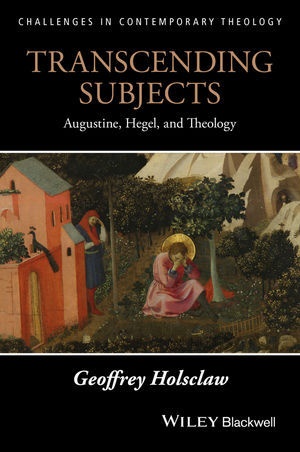Ulteriori informazioni
Transcending Subjects: Augustine, Hegel and Theology engages the seminal figures of Hegel and Augustine around the theme of subjectivity, with consideration toward the theology and politics of freedom.
Sommario
Acknowledgements ix
Citations and Abbreviations x
Introduction 1
Part I Hegel--Self-Transcending Immanence 15
1 Hegel in Contemporary Political Philosophy 17
Introduction 17
Evolutionary Social Practices: Autonomy through Sociality 19
Revolutionary Radical Act: Autonomy against Sociality 27
Conclusion 38
2 Consciousness and Freedom: Logic and Phenomenology of Spirit 43
Introduction 43
Nothing Is Infinite: Science of Logic 45
Infinite Self?]Consciousness: Phenomenology of Spirit 62
Beyond Nothing and the Unfathomable 89
Conclusion 93
3 Society and Freedom: Philosophy of Right 103
Introduction 103
The Subject and Substance of Politics 104
The Institutions of Ethical Life: Family, Civil Society, and State 115
The Limits of Self-Transcending Immanence 118
Conclusion 124
Part II Augustine--Self-Immanenting Transcendence 129
4 Augustine in Contemporary Political Theology 131
Introduction 131
Ontological Peace: Transcendence against Liberalism 133
Ordered Love: Transcendence for Liberalism 144
Conclusion 151
5 Conversion and Freedom: Confessions 155
Introduction 155
Conversion of the Will: Conflict and Intervention 160
Conversion of the Will: Community and Intervention 169
Conversion of Creation: Christ as Intervention 178
Conclusion 185
6 Society and Freedom: City of God 192
Introduction 192
Earthly City and the Lust for Domination 198
Justice and Res Publica 205
Justice, Love, and Sacrifice 208
Love and the World 215
Conclusion 222
Conclusion 230
Index 239
Info autore
Geoffrey Holsclaw is an Affiliate Professor of Theology and Director of Master of Arts in Theology and Mission at Northern Seminary. He is the co-author of
Prodigal Christianity (2013), as well as the author of articles in theology and political philosophy, examining major figures such as Hobbes, Badiou and ?i?ek, and integrating Eucharistic and Trinitarian themes to political practice.
Riassunto
Transcending Subjects: Augustine, Hegel and Theology engages the seminal figures of Hegel and Augustine around the theme of subjectivity, with consideration toward the theology and politics of freedom. .
Relazione
This book is a worthy effort to rethink a robust sense of divine transcendence, which helpfully highlights important philosophical, theological, ethical and political dimensions relevant to contemporary discussion. I particularly liked how it takes seriously a sense of divine transcendence that is not reducible to the forms of immanent transcendence currently more common, and that is also fully intimate with the immanent world, in a way more dualistic conceptions often failed to be in the past. The book importantly challenges a negative view of Augustine and a positive predilection for a non-metaphysical version of Hegel among some contemporary thinkers. It is very well versed in the works of Hegel and Augustine, and informed by the relevant scholarship. It is a readable and engaging book which insightfully and deftly unfolds a significant dialogue between Augustine and Hegel, as well as between the author and their significant contemporary interpreters.
William Desmond, Professor of Philosophy, Katholieke Universiteit, David Cook Chair in Philosophy, Villanova University

